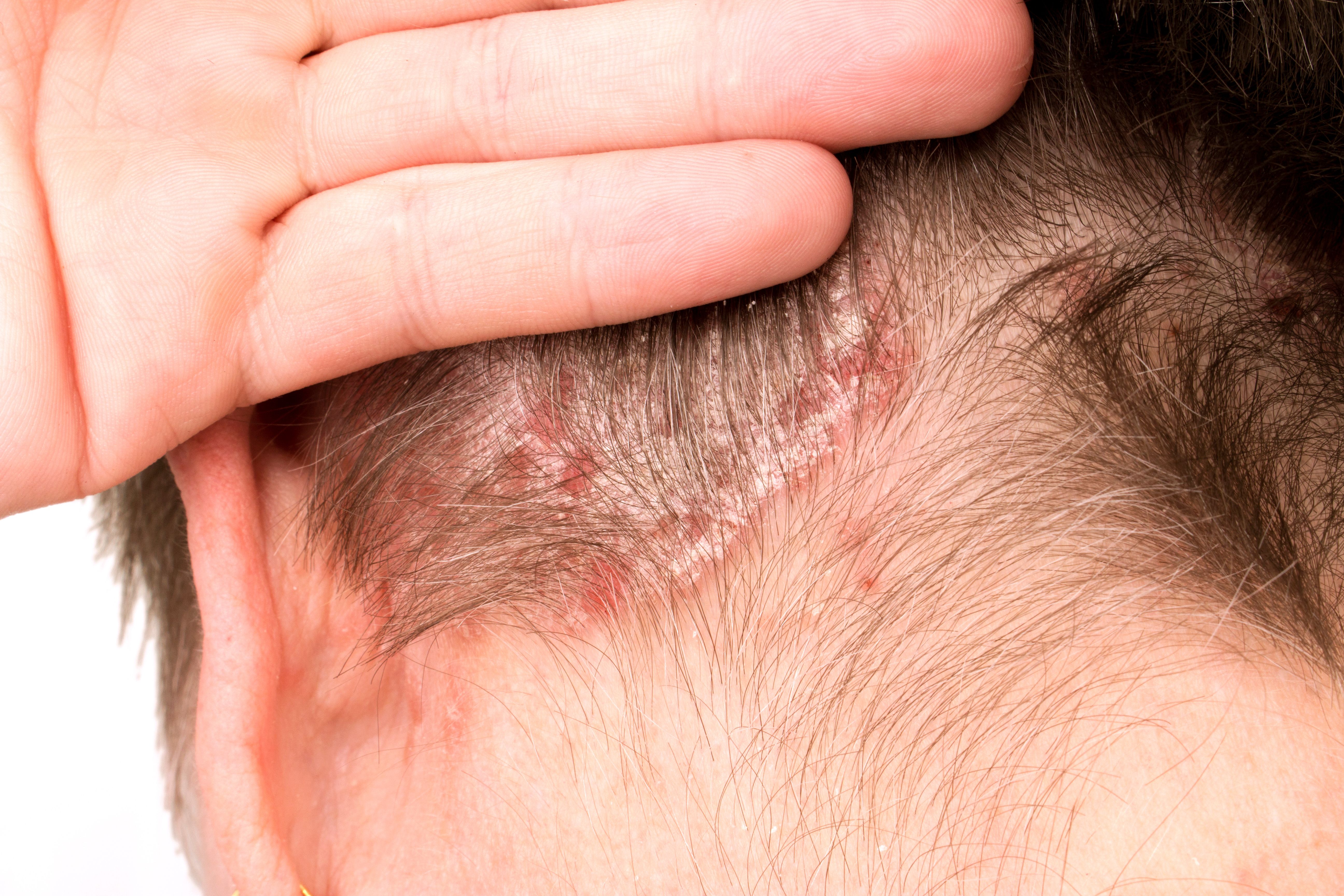- Center on Health Equity & Access
- Clinical
- Health Care Cost
- Health Care Delivery
- Insurance
- Policy
- Technology
- Value-Based Care
Secukinumab Shows Long-Term Efficacy, Safety in Pediatric GPP Treatment
Secukinumab delivers sustained efficacy and quality of life improvements in pediatric generalized pustular psoriasis (GPP).
By week 2 of secukinumab (Cosentyx) treatment, most pediatric patients with generalized pustular psoriasis (GPP) achieved complete symptom resolution, with improvements in disease severity and quality of life sustained through week 70, highlighting the long-term efficacy and safety of secukinumab in this patient population. 1
Secukinumab delivers sustained efficacy and quality of life improvements in pediatric generalized pustular psoriasis (GPP). | Image credit: Milan Lipowski - stock.adobe.com

The retrospective study is published in the Journal of Dermatological Treatment.
“These outcomes confirm our hypothesis that a structured dosing regimen of secukinumab offers substantial clinical benefits for this patient population,” wrote the researchers of the study. “Moreover, the favorable safety profile, marked by a low incidence of adverse reactions, further reinforces secukinumab’s viability as a treatment option for pediatric GPP.”
Secukinumab is a biologic treatment approved for adult and pediatric patients with moderate to severe plaque psoriasis.2 Secukinumab is designed to target and block interleukin-17 A (IL-17A), which is believed to play a role in inflammation.
The study enrolled patients aged 0 to 12 years diagnosed with GPP based on the International Psoriasis Council criteria, who received secukinumab from July 2021 to July 2024.1 Patients with allergies to secukinumab, concurrent psoriasis treatments, severe infections, malignant tumors, or systemic diseases were excluded.
Secukinumab was administered based on age-specific dosing: 75 mg for children aged 0 to 3 years and 150 mg for those aged 3 to 12 years. The regimen included weekly subcutaneous doses for the first 4 weeks, followed by every 4 weeks for 6 months, then transitioned to every 8 weeks for 6 months, and finally every 12 weeks. Treatment response was evaluated using the Generalized Pustular Psoriasis Area and Severity Index (GPPASI), Japanese Dermatological Association (JDA) score, and Infants’/Children’s Dermatology Life Quality Index (IDLQI/CDLQI).
This study included 10 patients divided evenly into 2 age groups based on their initial secukinumab treatment. The younger group included 5 children, aged 5 months to 3 years, with GPP onset between 1.5 and 6 months, while the older group included 5 children aged 5 to 9.8 years, with GPP onset between 7 and 9.8 years.
All patients demonstrated a positive response to secukinumab, with significant improvements in GPPASI, JDA, and IDLQI/CDLQI scores. By week 1, all patients achieved at least a GPPASI-50 response, with 10% reaching GPPASI-90 and 50% attaining GPPASI-75. By week 12, all patients achieved a JDA score of 0 and GPPASI-100, with sustained efficacy observed through the long-term treatment period. Flare-ups occurred in some patients during the 75 to 160 weeks of follow-up, with 5 experiencing recurrences after intentional treatment discontinuation or infections. These recurrences were promptly managed with resumed secukinumab treatment, leading to rapid symptom resolution.
Quality of life showed significant improvements from baseline, with sustained benefits despite temporary increases following recurrences. Adverse events were mild, primarily involving upper respiratory symptoms, conjunctivitis, or local injection site reactions, and did not necessitate treatment discontinuation. Overall, secukinumab was well-tolerated, demonstrating consistent efficacy and safety in managing pediatric GPP over the long-term.
However, the researchers acknowledged some limitations. Mainly, a small sample size limited the generalizability of the findings. Additionally, the study was conducted exclusively at Kunming Children’s Hospital, which may introduce center-specific biases and reduce the diversity of the patient population.
Despite these limitations, the researchers believe the study demonstrates that secukinumab is an effective and safe long-term treatment for pediatric GPP.
“The significant improvement in GPPASI scores and the reduction in seizure frequency underscore secukinumab’s potential as a viable option for managing this challenging disease,” wrote the researchers.
References
1. Xing L, Long L, Wu T, et al. Long-Term efficacy and safety analysis of secukinumab in the treatment of pediatric generalized pustular psoriasis: a real-world study. J Dermatolog Treat. 2025;36(1):2443121. doi:10.1080/09546634.2024.2443121
2. Pediatric plaque psoriasis (PSO): Cosentyx (secukinumab). Cosentyx. Accessed January 9, 2025. https://www.cosentyx.com/kids-and-teens/pediatric-psoriasis.
The Breakdown: Breast Cancer Research Awareness Day
August 19th 2025Breast cancer is the second most common cancer among women and the second leading cause of cancer-related deaths among women in the US. In light of Breast Cancer Research Awareness Day, The American Journal of Managed Care® breaks down the most recent advancements in breast cancer prevention, screening, and therapies.
Listen
Psoriasis as an Inflammatory Disease, and What’s Changed Over Time
August 3rd 2021August is National Psoriasis Awareness Month, and on this episode of Managed Care Cast, we bring you an excerpt of an interview with a New Jersey dermatologist about the changing concept of psoriasis as more than just a skin disease.
Listen
